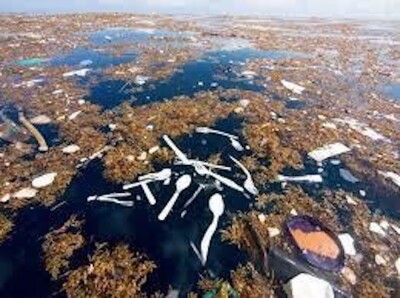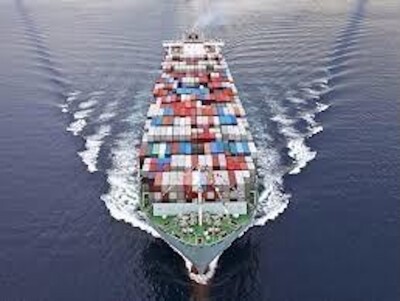
Relevant stakeholders must take immediate action to combat marine pollution in the Caribbean to shift the OECS Member States to a Circular and Blue Economy.
The Caribbean Islands have been crowned the world’s worst plastic polluters, producing four times the amount of plastic waste per person than China in 2019! According to World Bank data, uncollected plastic in Caribbean countries amounts to over 300,000 tons per year, while the United Nations Environment Program marine cleanup data recovered over 3 million plastic trash pieces over an area of fewer than 3000 kilometers from 2006 to 2012. Wastewater has been found to be one of the largest sources of marine pollution, with the majority of this pollutant going untreated into the Caribbean ocean. Eighty percent of marine pollution results from the emission of solids and liquids from land-based sources such as agricultural runoff, and infrastructure.
The OECS Islands are not small-island nations, but large ocean states.
The ocean keeps Caribbean economies afloat, supplying food and jobs for the region’s residents. Economic activities like fishing, shipping, communications, tourism, and recreation are all aided by it. The economic value of these services is estimated to be in the billions. The ocean is one of the Caribbean’s most valuable assets, and it has the potential to contribute to the region’s growth and development. Understanding and managing marine pollution concerns in the region is thus not just a concern for the environment, but also a matter of economic and social importance.

The Blue Economy offers opportunities to aid the Caribbean to realize its full potential for aquatic resources by fostering secure and resilient coastal communities, maintaining healthy and productive seas, and fostering inclusive and sustainable economic growth.
The concept of a Blue Economy considers the ecosystems that provide so many of the services associated with the ocean economy to be underlying natural capital assets (for example, fish stocks and beaches).
Policy frameworks and industries that can expand the blue economy are increasingly emerging. As a basis for the transition to a blue economy, governments and development partners have initiated a variety of regional efforts to better measure and protect the Caribbean Sea’s natural wealth. For instance, the GEF has supported the United Nations Development Programme (UNDP )’s Large Marine Ecosystem (CLME) Project since 2009, which aims to better assess the state of the region’s ecological systems and natural capital, as well as to support policy recommendations for conservation. A Caribbean Waste Management Action Plan, developed by Caribbean ministers, presently includes more than ten Caribbean islands, with the goal of minimizing plastic waste. Single-use plastics are now prohibited on these islands.

In collaboration with Ministries of Environment and Sustainable Development in Islands which are a part of the OECS, New activities in the area of Ocean Governance and Blue Economy are continually being developed in the Eastern Caribbean by the OECS Commission’s Ocean Governance and Fisheries Unit.
The Caribbean Regional Oceanscape Initiative (CROP), a five-year project aimed at stimulating the growth of the blue economy in the Eastern Caribbean, is one of the projects recently launched by the OECS Commission in addition to The Building Resilience in the Eastern Caribbean through Marine Litter Reduction Project which will run from 2018 to 2022. (ReMLIT).
The ReMLit Project is enabling change, with the OECS Commission at the frontlines of the action plan to shift OECS Member States to a Blue Economy, by improving and harmonizing waste management policy and legislation, helping to educate for waste behavior change, and offering support to enforce concrete interventions on the ground to reduce marine litter at the country level.
If nothing is done about marine pollution, the Caribbean economy would suffer from the aesthetic degradation of its natural resources such as beaches and mangroves. This might lead to decreasing tourist visitation rates, which would have ramifications beyond the tourism industry. It will have a detrimental economic impact on the remainder of the Caribbean territory. Furthermore, increased marine pollution would stimulate mosquito breeding, which might spread dangerous viruses and render the Caribbean area more vulnerable to infectious illnesses.
It is undeniable that combating marine pollution is a primary concern in terms of the environment, economy, and society. The majority of inhabitants in Small Island States
live within 10 kilometers of the sea. Marine pollution poses a serious danger to the region’s development and the people’s quality of life.
Guest Author:Andaiye McMillan

